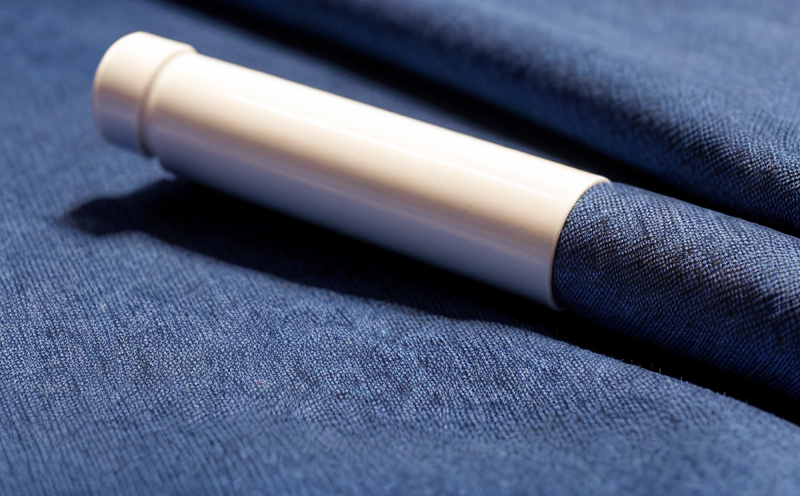Determining the water uptake capacity of fabric materials
The Crucial Role of Determining Water Uptake Capacity in Fabric Materials Why Eurolabs Expertise is a Game-Changer for Businesses
In todays fast-paced textile industry, manufacturers are constantly seeking innovative ways to improve the performance and sustainability of their products. One critical aspect that often gets overlooked is the water uptake capacity of fabric materials. This essential property determines how much moisture a fabric can absorb without compromising its structure or functionality. At Eurolab, our team of experts provides an unparalleled laboratory service that accurately measures the water uptake capacity of fabric materials, empowering businesses to make informed decisions and stay ahead of the competition.
What is Determining Water Uptake Capacity?
Determining the water uptake capacity of fabric materials involves measuring the amount of moisture a fabric can absorb under specific conditions. This process requires a combination of technical expertise, specialized equipment, and precise testing protocols. Our laboratory service uses advanced methods to evaluate the water uptake capacity of various fabric types, including natural fibers, synthetic fibers, and blends.
Why is Determining Water Uptake Capacity Essential for Businesses?
The importance of determining water uptake capacity cannot be overstated. Here are some key reasons why this laboratory service is crucial for businesses
Improved Product Performance By understanding the water uptake capacity of fabric materials, manufacturers can optimize their products performance in various applications. For instance, clothing and textile designers can create garments that breathe, dry quickly, or maintain insulation even when exposed to moisture.
Enhanced Sustainability Fabrics with high water uptake capacities often have a negative impact on the environment due to excessive moisture retention. Our service helps businesses identify materials with optimized water absorption, reducing waste and promoting eco-friendly practices.
Increased Customer Satisfaction Consumers demand products that meet their needs while minimizing environmental impact. By providing fabrics with tailored water uptake capacities, manufacturers can create products that exceed customer expectations and foster brand loyalty.
Competitive Advantage In a crowded market, understanding the intricacies of fabric materials gives businesses a significant edge over competitors. Eurolabs expertise provides valuable insights that enable companies to innovate and differentiate their products.
Cost Savings By optimizing fabric performance through precise water uptake capacity measurements, manufacturers can reduce costs associated with material waste, rework, or even product recalls.
Eurolabs Expertise The Key Benefits of Our Determining Water Uptake Capacity Service
Our laboratory service offers numerous advantages that set us apart from other providers
State-of-the-Art Equipment We utilize cutting-edge technology to ensure accurate and reliable results, providing clients with unparalleled confidence in our findings.
Customized Testing Protocols Our team of experts designs tailored testing protocols for each clients specific needs, ensuring that our results are directly applicable to their products.
Comprehensive Reporting We provide detailed reports that include water uptake capacity values, data analysis, and expert interpretations, allowing clients to make informed decisions about material selection and product development.
Rapid Turnaround Times Our efficient testing processes ensure that clients receive timely results, enabling them to stay ahead of production schedules and meet market demands.
Frequently Asked Questions (FAQs)
What types of fabric materials can you test?
We have extensive experience in testing a wide range of fabric materials, including natural fibers (cotton, wool, silk), synthetic fibers (polyester, nylon), blends, and specialty fabrics (waterproof, breathable membranes).
How do you determine the water uptake capacity of fabric materials?
Our team uses advanced methods such as gravimetric analysis, differential scanning calorimetry (DSC), or thermogravimetric analysis (TGA) to measure the water uptake capacity of fabric materials.
What are the benefits of determining water uptake capacity in various industries?
The importance of understanding water uptake capacity extends beyond textiles to other industries, including
Aerospace and Defense Moisture-resistant fabrics for aircraft and protective gear
Medical and Healthcare Breathable, antimicrobial fabrics for wound care and hygiene products
Sports and Outdoor Wear Performance-enhancing fabrics with optimized water management
How do I ensure that the results are accurate and reliable?
Eurolabs strict quality control measures, ISO/IEC 17025 accreditation, and adherence to industry-recognized standards guarantee the accuracy and reliability of our test results.
Conclusion
Determining the water uptake capacity of fabric materials is a crucial aspect of product development in various industries. Eurolabs laboratory service provides businesses with expert insights that enable them to optimize their products performance, enhance sustainability, increase customer satisfaction, and gain a competitive edge. By partnering with us, companies can tap into our extensive knowledge and experience, ensuring they stay ahead in the ever-evolving textile market.
Get Ahead of the Competition Contact Eurolab Today
Dont let water uptake capacity issues compromise your products performance or reputation. Trust Eurolab to provide you with accurate, reliable, and actionable results that set your business apart from the competition.




